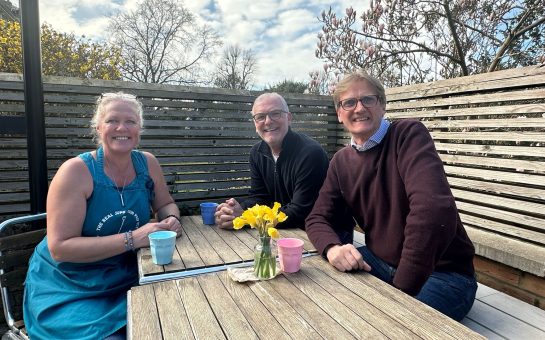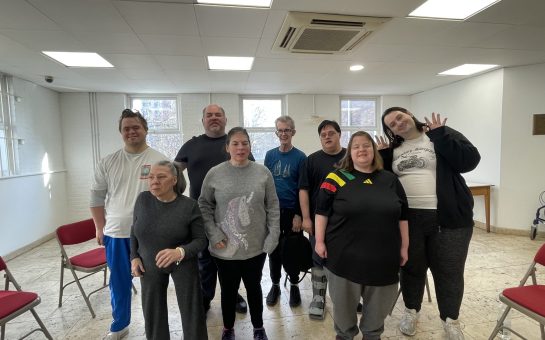A London charity that is leading change in the social care sector has started work on its first children’s home in Sutton.
With more than 75,000 children in care across England, Lighthouse is striving to improve social and educational outcomes while encouraging collaboration and innovation within the system.
The charity’s director, Emmanuel Akpan-Inwang, described the importance of not only establishing new homes in the UK, but fundamentally changing how the country approaches social care.
He said: “We think there are a number of key issues that need to be addressed in order for children’s homes to improve.
“One of those is around recruitment, retention and training. It’s really challenging work and it’s not very well paid which leads to really high turnover and means that children cannot form the relationships they need to.
“There’s a real issue in terms of placements as lots of local authorities have to place children outside the local authority because they don’t have the provision. Children’s homes can feel quite institutional as well and they’re often where property is cheap not where the need is greatest.
“We are based on four key principles which we call people, place, purpose and social pedagogy.
“It’s about finding, recruiting, training and retaining really great people who are able to build lasting relationships with young people.
“It’s about having homes where they’re needed. London really needs children’s homes, and it doesn’t have enough. We want to create places that look and feel like home.
“We also believe strongly in education; we prioritise education but at the same time we think that children’s homes should be therapeutic.
“Finally, we use the social pedagogy approach which is quite common in Germany and Denmark and much of Western Europe but is not very well known in the UK.”
Lighthouse’s model is greatly inspired by Akpan-Inwang’s experience in Denmark and Germany, where a strongly integrated system of social care and education has led to remarkably improved outcomes for children.
He added: “They didn’t seem to have the same challenges that we had.
“They had a sector where people would enter and stay for a long period of time. Salaries were quite good, and people were generally trained at university level.
“You’d do a degree in social pedagogy before working in a children’s home. There seemed to be a really solid evidence base on which people were making decisions. I thought perhaps there are some things that we can learn here and apply in the UK.
“I think back to the different experiences that I had walking into a children’s home in Denmark and a children’s home in the UK.
“We have taken the approach of: we need to build a children’s home, what does that need? Whereas in Western Europe they work on the assumption of, let’s build a home and it happens to have children in it. They try to keep things as normal and as non-institutional as possible.”
Considering the promise shown by the countries that Akpan-Inwang visited, he voiced his frustration that the UK was yet to reach those training standards.
“I think that training for residential care workers in the UK is not fit for purpose” he continued.
“I can say that because it’s the people who work in residential care who have said that, pretty much universally.
“It doesn’t have the content that it should do which is around building relationship and supporting young people.
“What we’ve decided to do is work with a few other organisations in order to develop a bespoke training program at degree level. We think that will go a long way towards giving staff the knowledge and understanding they need to support children in children’s homes.
“Children’s homes at the moment are seen as a place of last resort and only for the periods when children need help. What we see social care being is for the right children and for the right period of time.
“That might mean for some children it’s shorter and for others it might be a longer period of time and actually they should be progressing out of social care when it’s right for them.”
In spite of the challenges facing social care in the UK, Akpan-Inwang is hopeful that the joint efforts of groups like Lighthouse can drive direct and positive change.
He concluded: “We have definitely found that the organisations we’ve spoken to are really willing and open to listening to an alternative and new approach.
“There is a growing interest in what is going on and what we want to do is harness this and encourage organisations to collaborate and work together to improve the sector.”




